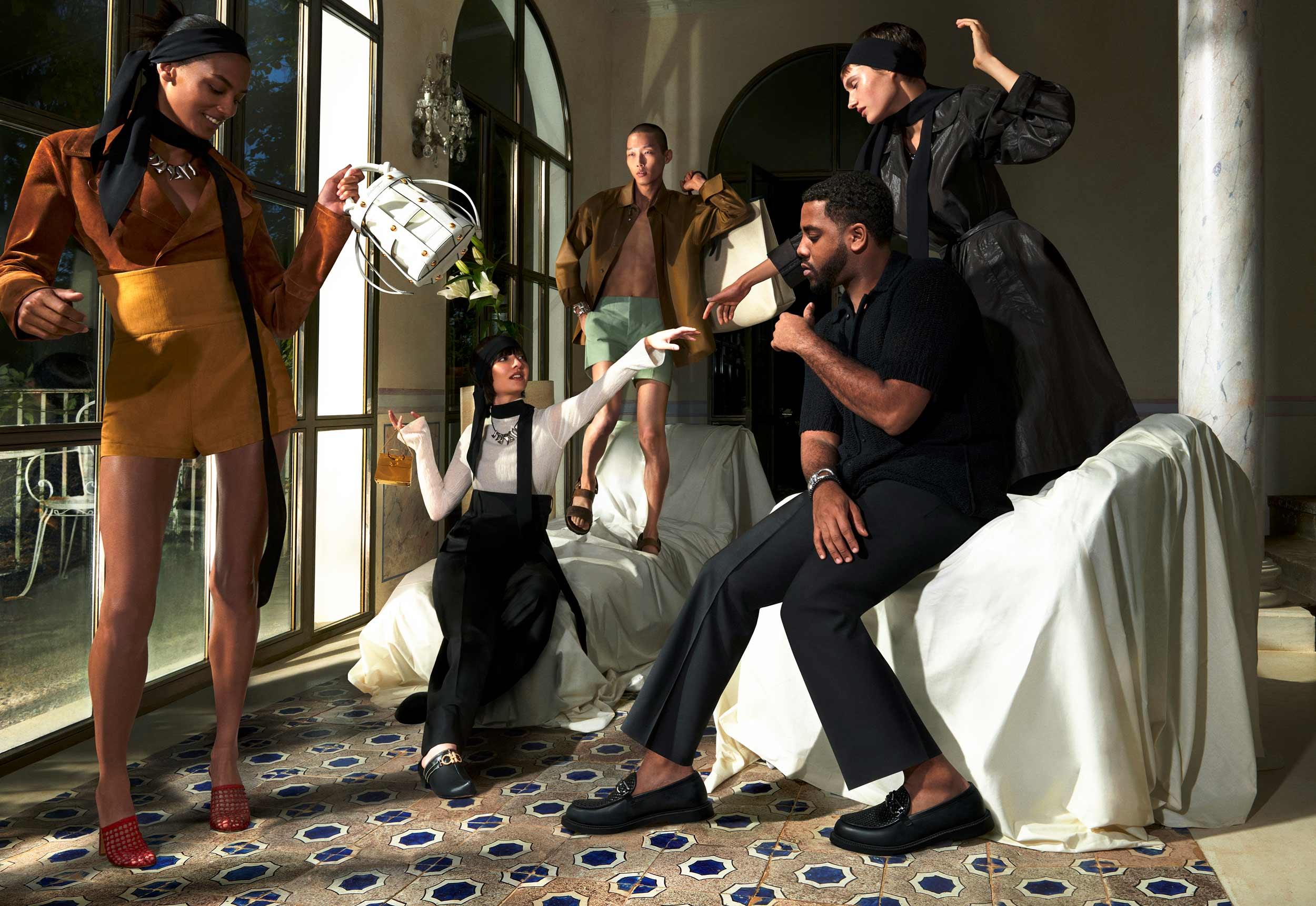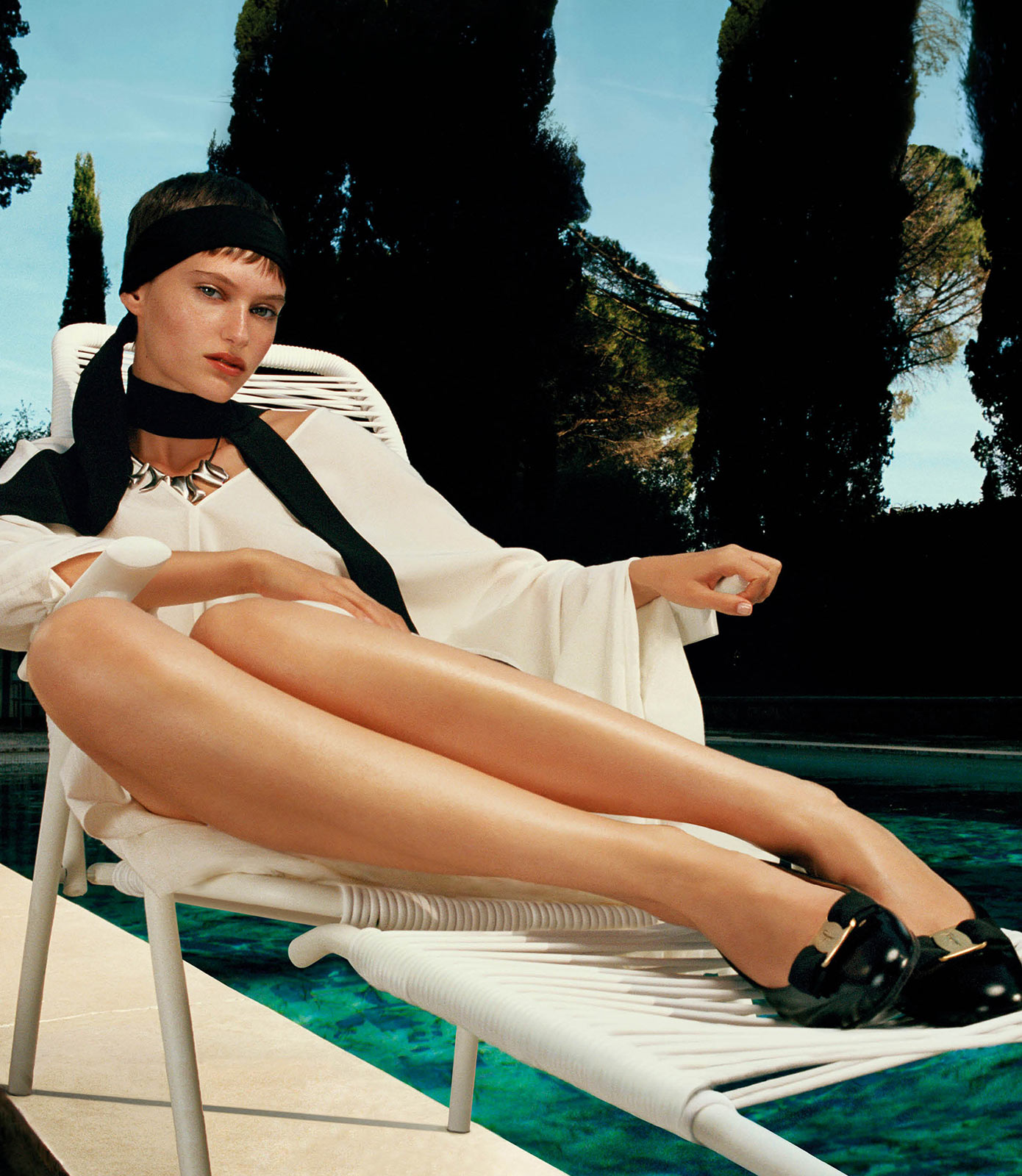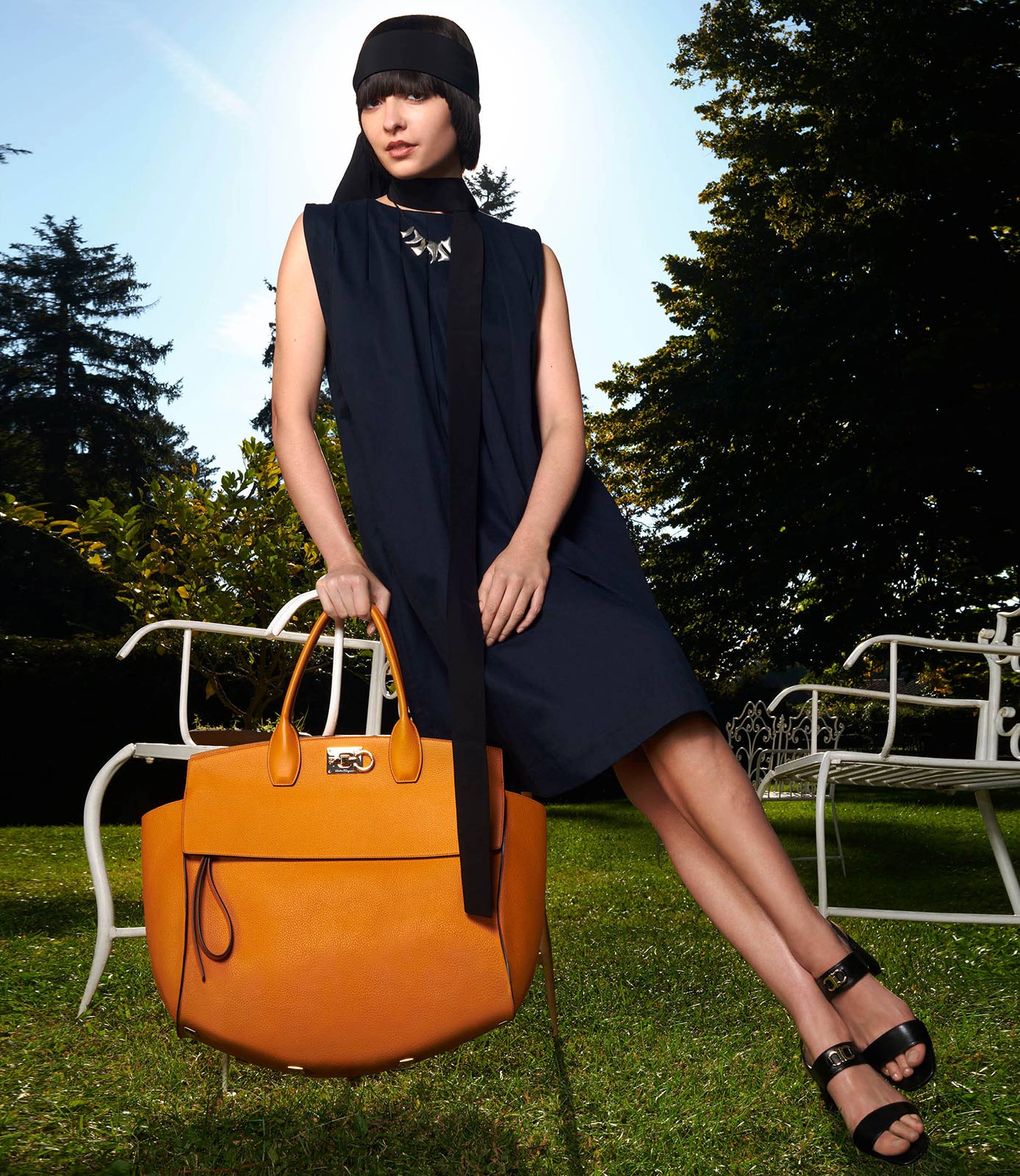The artist and director joins Document to discuss the making of ‘Hotel Splendid'
Hotel Splendid, a short film from artist and director Amalia Ulman is the most recent chapter in Ferragamo’s cinematic repertoire. On an idyllic holiday among Mediterranean trees and tiles we follow the campaign cast, including Ulman and Emmy award-winning actor and musician Jharrel Jerome alongside models Greta Hofer, Nyaueth Riam and Xu Meen, through a visually sensual summer.
The ready-to-wear looks of Ferragamo Spring-Summer 2022 indicate themes of emotional possibility. Featuring vivid colors, knit garments, bohemian clogs with Gancini buckle, and the iconic Vara and Varina shoes, the designs evoke both the glittery excitement of budding lust and the warm nostalgia of familial love. The film’s central narrative—a return to the relationships that define home—calls back to Salvatore Ferragamo’s own journey to Hollywood and subsequent return to Italy. Bags serve as central characters throughout, centered by Ulman’s cinematographic techniques of overlapping planes and geometric zooms. Alongside the Ferragamo Studio Bag and the Trifolio, an ultra-soft bucket bag makes its debut in a range of surprising colors.
Ulman’s portrayal of familial relationships in the film brings to mind her cinematic debut, El Planeta, a critically acclaimed black-and-white film that tackles themes of class, gender, and social politics through the story of a mother and daughter. Her work historically is deeply intertwined with herself. Most notably, her 2014 Instagram-based work Excellences and Perfections found the artist publicly documenting a supposed nervous breakdown as a commentary on the disconnect between our virtual identities with ourselves. For Document, Ulman discusses the allure of Ferragamo and the thematics of her film, captured by Hugo Comte in this special portfolio of images.
Megan Hullander: As a filmmaker, how does fashion inform narrative?
Amalia Ulman: For me, fashion is a very big part of filmmaking because I’ve always appreciated good costume design in cinema. I do believe it elevates the narrative and brings a film to a whole other level, from “good” to “iconic.”
Megan: How has fashion factored into your past works? Did this film feel like a departure from that?
Amalia: In previous performances, it had definitely helped give shape to the characters I was developing. [For example] in my debut feature film El Planeta, costume design was particularly important because both characters were living off their appearance and my role, Leo, was a fashion student at CSM.
Megan: Your work historically takes on the heavier thematics of culture, how does this project fit into your career and what drew you to it?
Amalia: I always try to push the limits of the framework I’m supposed to be working within, and I think this time I did so by stepping away from the portrayal of romantic relationships and instead focusing on a boy-girl friendship story.
Megan: Where did the concept for this film come from?
Amalia: A lot of the inspiration for the campaign’s short came from European films about summer vacations and homecomings: feelings of boredom and stagnation at the beach, or dealing with the nuisances of living with one’s parents again, even if for a brief moment. But I wanted to write a story that wasn’t the usual boy-meets-girl narrative. I was particularly interested in dealing both with familial shame and cute platonic friendships—the things we might feel embarrassed about when we go back home with our families, and also those beautiful seasonal friendships with people we might have never seen again.
Megan: What elements of the collection did you find most exciting, and how did they influence the film’s conceptualization?
Amalia: What I liked the most was incorporating the designs as uniforms for my mother and I, shown as workers of Hotel Splendid. That was a fun thing to do for us.
Megan: How does this film fit into or expand Ferragamo’s existing films?
Amalia: I think Ferragamo’s previous collaborations with film directors have always been an ode to cinema and I wanted to honor that feeling as well. And this is why the film has hidden references to movies I like, for example Amadeus by Milos Forman and Love Streams by John Cassavetes.



















